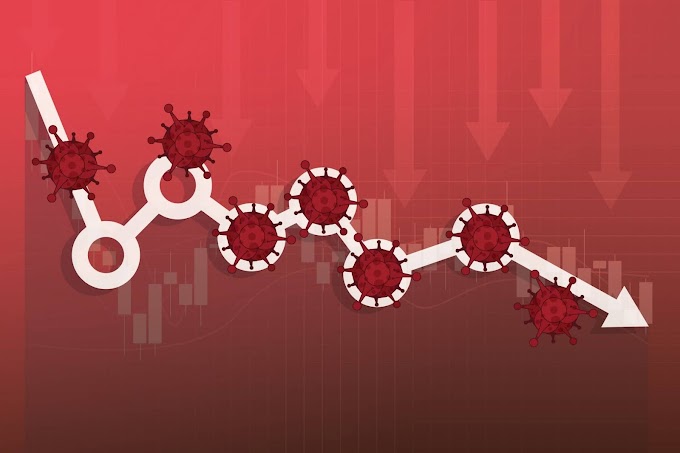This has always been a challenging subject to tackle for many students at the medical school level. The constraints and limitations exist at a very fundamental level such as acquiring the skills, mentorship, and mentality needed to accomplish worthwhile scientific research. The curricula of medicine across the globe are already packed with loaded subjects leaving very little room to develop and hone their own ability to perform original research however, it has more or less become an expectation for students to have some sort of publication before applying for residencies. This problem is further amplified with the changing of STEP1 to pass/fail. As the supply of residencies hasn't increased to match the steadily growing demand for positions, the changing of the grading system has only shifted the burden of assessing meritocracy onto STEP2 scores and much more subjective markers - which include research.
Spending an entire year away from campus as I'm currently in my preclinical years so my classes were online, I delved into the nuanced world of scientific publication. I wondered if I would be able to publish work while sitting at home not having access to my universities hospital resources or professors guidance. This is my guide on how I ultimately managed to get published;
1. Spend time reading literature
If you have a vague idea of what field of medicine you might be pursuing in the future, look up journals in that relevant field. There might be pay-walls but plenty of open access methods exist and all COVID literature is available for free. Getting into the habit of doing this will provide you with insights on the nature of scientific writing, the calibre of work expected, and might inspire you to come up with potential topics for your own research. Ultimately, it's a good habit to develop as it reinforces the medicine you're learning and keeps you updated on the current discussion in your field of interest.
2. Start small
Reading pages upon pages of complex analysis and discussion of esoteric concepts can quickly become overwhelming. However, it is important to stay the course and try your best to understand as much as you can. You will begin to see themes of analysis emerge. Couple this with whatever foundational understanding of statistics you have and begin researching unfamiliar terms as you see them. As you expand your own dictionary, your intuitive sense begins to grow. Thinking of performing research on that scale, especially as a pilot project from your own room, can still seem like a daunting task.
To familiarize yourself with the process of publication, I would recommend starting off by writing a correspondence to a particular journal. While each journal defines a correspondence differently, it is generally a letter sent out to a journal which either comments on a previously published piece of work (to prompt a discussion) or a brief article that discusses a topic of general interest pertinent to the scope of that journal (click on the hyperlinks to see examples of each). I would recommend starting off with the latter. Seek inspiration from developments around you; from the literature you've been reading; or an area you feel hasn't received as much attention as it deserves. Notably, this isn't original research. These are generally only 600-800 words long with around 6-10 references and can be a great confidence booster in your journey as a novice researcher, and you become familiarized with the process or choosing the right journal and the whole submission process. Perhaps make a shared drive with a colleague, brainstorm some ideas, divide the workload and proceed with your first submission.
3. Learn how to use a statistics software
Fueled by the energy and rush of submitting my first letter to a journal, I immediately went to work on a bigger project. The review process takes at least a couple of months so it's best if you keep if off your mind and dedicate your energy to a new project. I personally began by watching youtube tutorials on how to use SPSS (Statistical Package for the Social Sciences) - of which there are an abundance of. By setting aside 2 hours every night practicing with data sets, watching videos on statistical concepts that weren't making sense, and learning how navigate the software, I was able to obtain a functional degree of competency in 2 weeks having started with no experience. Not only is learning SPSS extremely helpful when it comes to data analysis, but I found using other software such as R comparatively easier. Once you've overcome this learning curve, the greatest hurdle has been cleared. You are now equipped to dissect and evaluate data as you please. However, acquiring that data can prove to be a daunting task once you've decided the objective of your paper. It is for this reason that the next step is so necessary.
4. Assimilate a team
Attempting to write a manuscript for an original research paper is a long and strenuous job. For example, if the title you come up with is something along the lines of "Investigating the amount of female first authors in 'X' field during the last 'Y' years", you will need to go through various databases such as PubMed, Medline, EMBASE, and Scopus to determine the gender of each papers first author. This isn't difficult work but it is time-demanding and monotonous. The only way to realistically accomplish it in a reasonable timeframe is to divide the task amongst your colleagues. When it comes to selecting team members, previous research experience isn't necessarily a requisite. You need these people to help you with data collection and assist you with writing parts of the manuscript such as the introduction. I've always found that once given the proper guidance and instruction, my med school colleagues (with no previous experience) have given great care and thus produced excellent results when it comes to scientific writing. Once you've collated the data and performed the necessary analysis, the premise of your discussion will become apparent. Bring all the pieces together and you'll have your first draft.
By being creative and innovative with your research objectives, you can create plenty of original work from data already out there. During COVID lockdowns, our ability to be present and perform clinical research is greatly diminished. However, the significance of said research in shaping our future prospects isn't. It is therefore unwise to not utilize this time obtaining this skillset. I wish everybody reading this the best of luck and if there's any questions, please feel free to reach out.





0 Comments